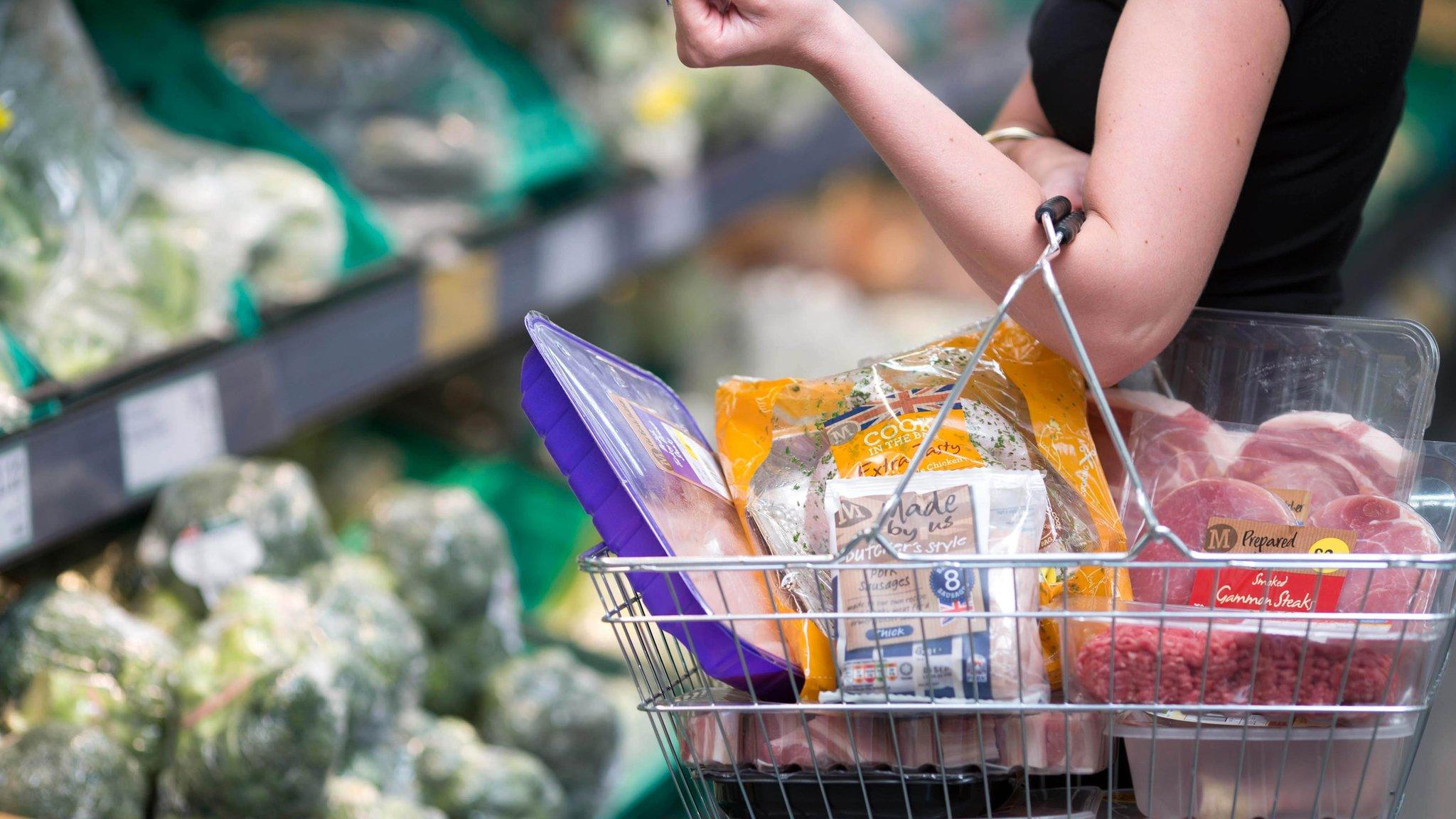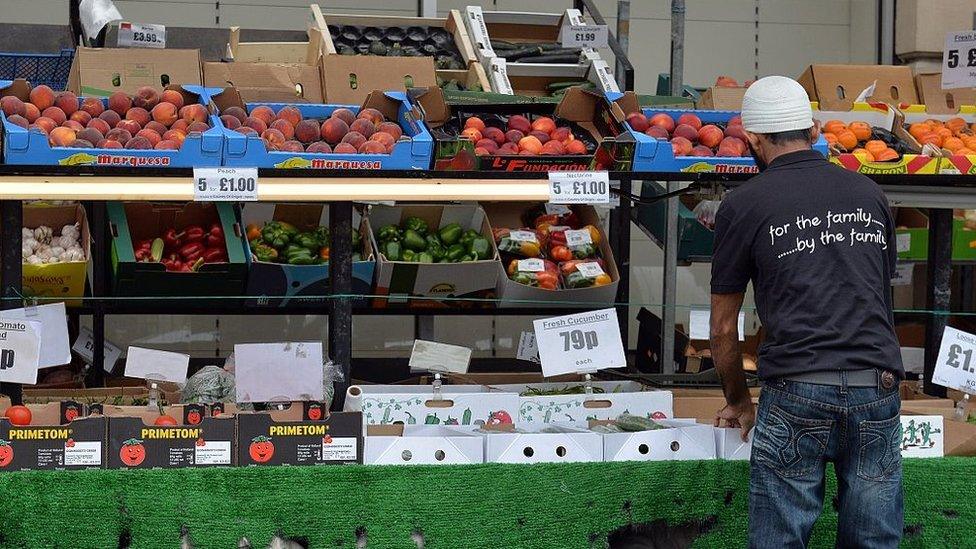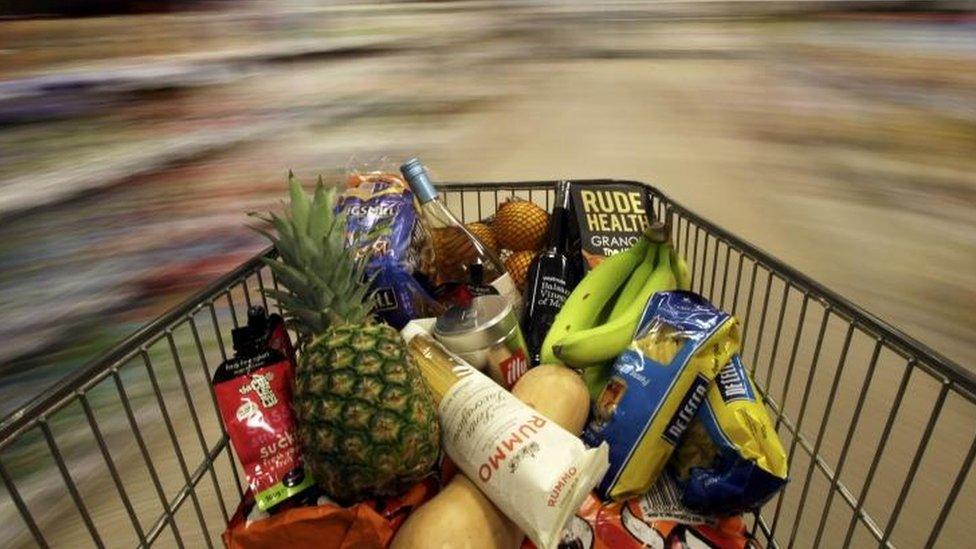Record drop in food prices may not be sustained
- Published

The cost of food fell by a record amount last month, according to the British Retail Consortium (BRC).
The BRC Neilsen Shop Price Index showed food prices fell 1.1% in August, following 0.8% falls in the previous two months.
Competition among supermarkets is driving deflation.
However the BRC warned that a weakened pound is likely to push up grocery prices in the coming months.
The pound has fallen in value since the UK voted in June to leave the European Union, which makes imported goods more expensive.
Falling prices
"Lower prices this August compared to last were driven by a combination of continuing promotional activity, softening oil prices and a global supply glut of wheat weighing on food prices," said Helen Dickinson, BRC chief executive.
The index showed that overall shop prices reported deflation of 2% in August, compared to a 1.6% decline in July. Non-food deflation rose to 2.5% in August from 2.2% in July.
Morrisons is the latest to announce price cuts on food, reducing the cost of 130 essential meat and poultry products by 12%. The supermarket chain said it has cut the prices of more than 4,435 products this year.

Morrisons is the latest supermarket to announce price cuts
'Upward pressure'
"The devaluation of sterling in the wake of the referendum will put upward pressure on shop prices," warned Ms Dickinson.
But she added that price increases are several months away "given that retailers won't feel the brunt of the cost increases until existing contracts with foreign suppliers come to an end".
Even then supermarket competition may help keep rises to a minimum. "Retailers will have to make a decision about when and how much to pass onto consumers," Ms Dickinson pointed out.
"Given the strength of competition in the market, and if the economy softens in line with predictions, any pass through may be more limited than implied by the exchange rate movement."
- Published6 July 2016

- Published28 June 2016
